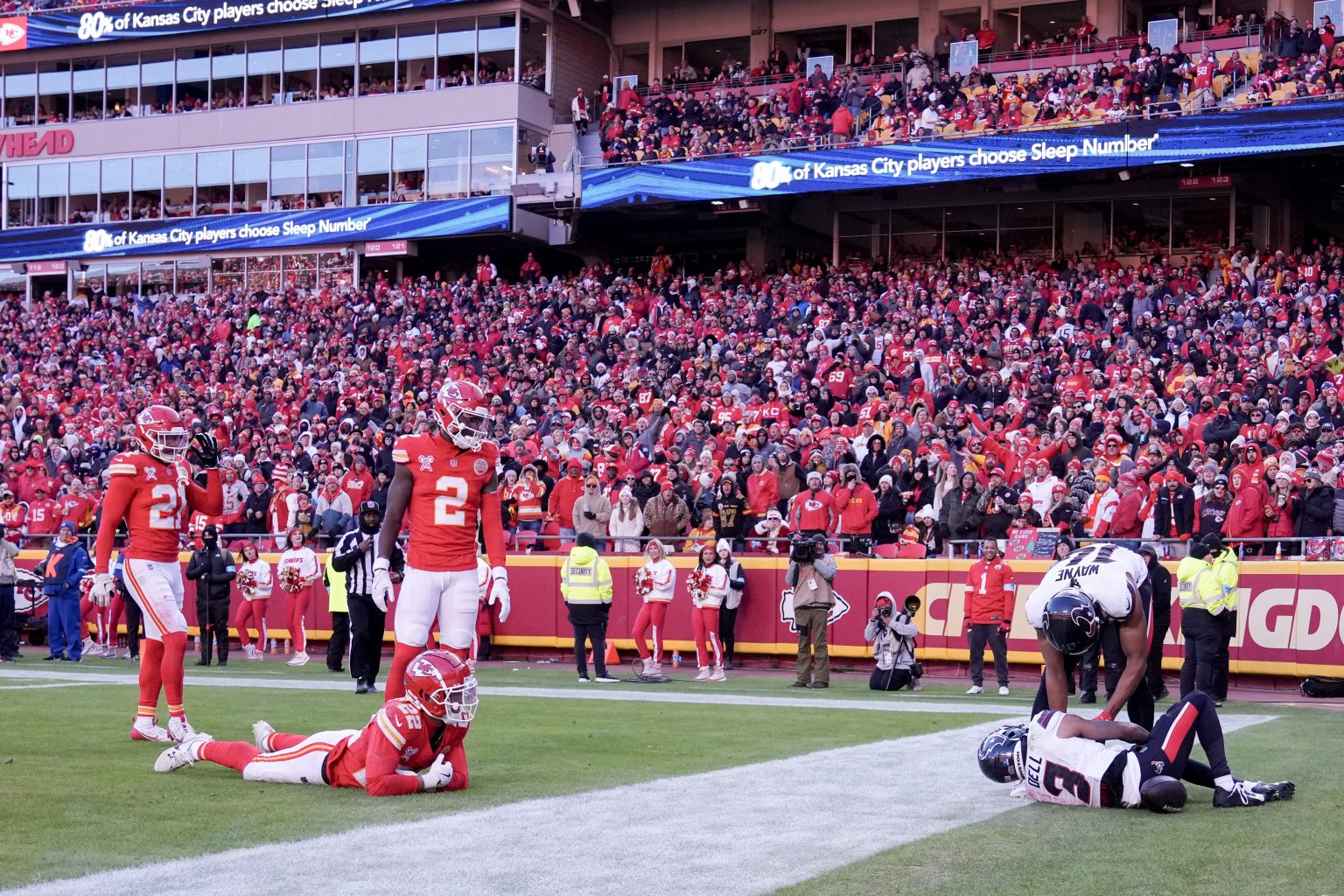Houston Texans rookie wide receiver John “Tank” Dell suffered a significant knee injury during the team’s preseason game against the Kansas City Chiefs, casting a shadow over what had been a promising performance. Dell’s injury occurred in the third quarter after he made a spectacular leaping touchdown catch in the end zone. As he secured the ball, teammate Jacob Wayne collided with a Chiefs defender, inadvertently crashing into Dell’s legs. The impact left Dell writhing in pain on the field, immediately raising concerns about the severity of the injury. Medical personnel attended to him for an extended period before he was carted off the field and transported by ambulance to the University of Kansas Hospital.
The somber scene unfolded as Dell’s teammates gathered around him, offering support and concern. Quarterback C.J. Stroud, visibly distraught, was seen crying on the sidelines, highlighting the emotional impact of Dell’s injury on the team. Head coach DeMeco Ryans later confirmed the seriousness of the situation, describing the injury as “significant” and announcing that Dell would remain overnight at the hospital for further evaluation. The news sent ripples of concern throughout the Texans organization and the wider NFL community, as Dell had emerged as a key player and fan favorite during the preseason.
The injury marks a devastating setback for Dell, who had been showcasing his potential as a dynamic playmaker in the Texans’ offense. His impressive performance against the Chiefs, culminating in the touchdown catch just before the injury, underscored his ability to create separation and make difficult catches. Dell’s speed, agility, and knack for finding the open field had quickly endeared him to fans and established him as a promising target for Stroud. The uncertainty surrounding the extent of his knee injury and the potential length of his recovery casts a pall over the Texans’ offensive plans and raises questions about how the team will adjust in his absence.
The incident underscores the inherent risks of professional football and the fragility of a player’s career. One moment, Dell was soaring high to make a game-changing play, and the next, he was lying injured on the field, his future uncertain. The outpouring of support from teammates, coaches, and fans reflects the respect and admiration Dell had earned in his short time with the Texans. While the focus remains on his recovery, the incident serves as a stark reminder of the physical toll the game can take and the ever-present possibility of injury.
Looking ahead, the Texans face the difficult task of navigating their upcoming games without Dell. The coaching staff will need to reassess their offensive strategy and identify players who can step up to fill the void left by his absence. While replacing Dell’s specific skillset will be a challenge, the team will likely look to other receivers on the roster to contribute more significantly. The injury also creates an opportunity for other young players to showcase their abilities and potentially earn a more prominent role in the offense.
Beyond the immediate impact on the team’s performance, Dell’s injury raises broader questions about player safety and the measures taken to protect athletes from such incidents. While unavoidable collisions are part of the game, the NFL continues to explore ways to minimize the risk of serious injury. The league has implemented various rule changes aimed at protecting players, particularly those involving helmet-to-helmet contact and hits on defenseless receivers. However, as Dell’s injury demonstrates, even seemingly routine plays can result in significant injuries, highlighting the ongoing need for vigilance and innovation in player safety protocols. The Texans and the NFL community will undoubtedly rally around Dell during his recovery, hoping for a swift and complete return to the field. However, the incident serves as a sobering reminder of the inherent risks involved in professional football and the importance of prioritizing player safety.

